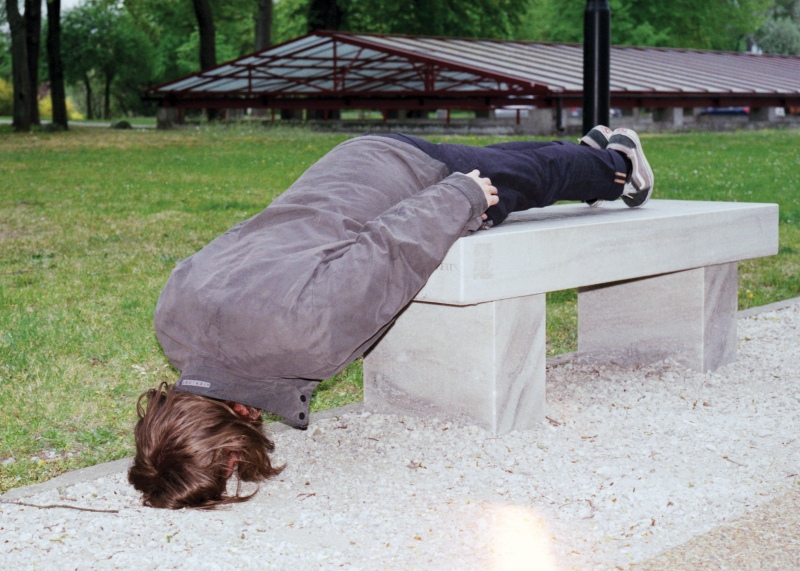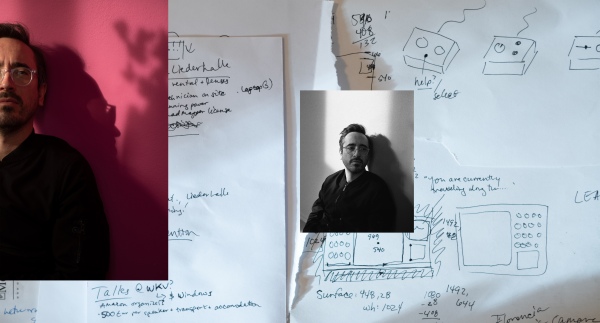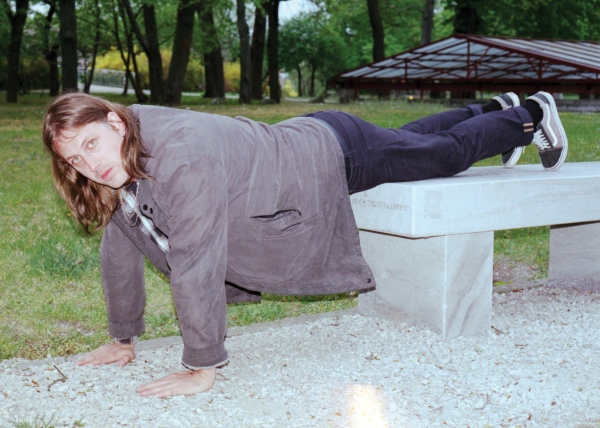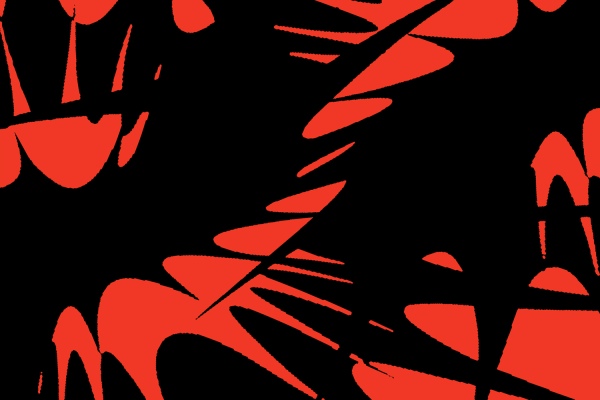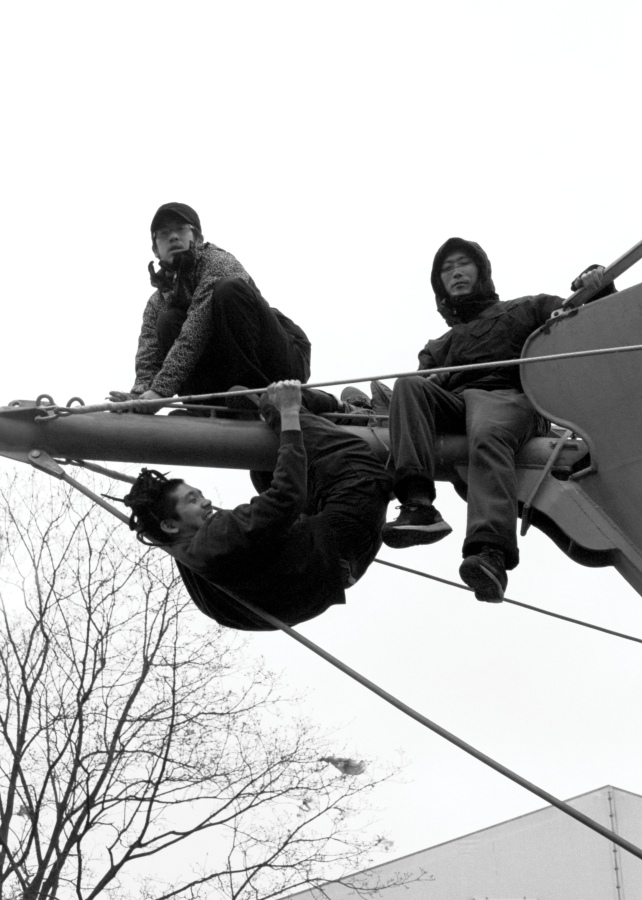Into safe space politics
The art projects I was involved in or initiating were always close to forms of activism – Swiss artist Marc Hunziker in conversation with Agnieszka Sural
-
Agnieszka Sural: Holding self-organised parties and combining art into a party format has become your thing. How did it all start?
- Marc Hunziker: The teachers from the Zurich University of Arts, where I studied, provided me with a big space. Instead of using it as a production studio, Chantal Kaufmann, Rafał Skoczek and I turned it into a bar. We called it the Pool Bar. Once a week for almost two years, the whole city came to the art school for our parties and events. The money we raised was used to finance our art space in a squat – Up State. To us, this strategy was a parasitic form of self-organisation. We were then invited to hold shows at various institutions, where we also started to adapt that strategy. So in the end, parties weren't our artistic practice, nor did we create an ‘art as a party’ format. Instead we used institutional frameworks to generate resources, and then redistributed those into our network.
-
Were you living in the squat too?
- Yes, I have been living in squats for the last ten years.
-
What is your artistic practice? Can you tell a bit about the various activities you are involved in?
-
I carried out simple interventions in art spaces, changing the social functions and the influence that space can have on a person’s perception and behaviour. It’s hard for me to talk about that at the moment as I am rather bored of art as an individual, studio practice. I also co-run a self-organised art and social space in a squat in Zurich called Up State. In historical origin, squatting and occupying abandoned buildings is a political act. It is not my artistic practice. The art projects I was involved in or initiating were always close to forms of activism. Last semester, I started to study philosophy and history at the University of Zurich, so sometimes I am also a student. Together with Nicola Kazimir, I am co-curating the label Gentrified Underground. And here in Warsaw I am on an artist-in-residency programme, I am being paid for that so I am an artist.
-
-
What have you done during your six-month residency in Warsaw?
- The programme I am on is considered a research residency where I don‘t have to produce any end product. This is a very comfortable situation, a highly privileged one on one hand, and an absolutely crucial one when it comes to questions of extending the concept of art production. I have used the time for reading and writing. I have also enjoyed my stay here, with friends that visited me and people I have met in Warsaw.
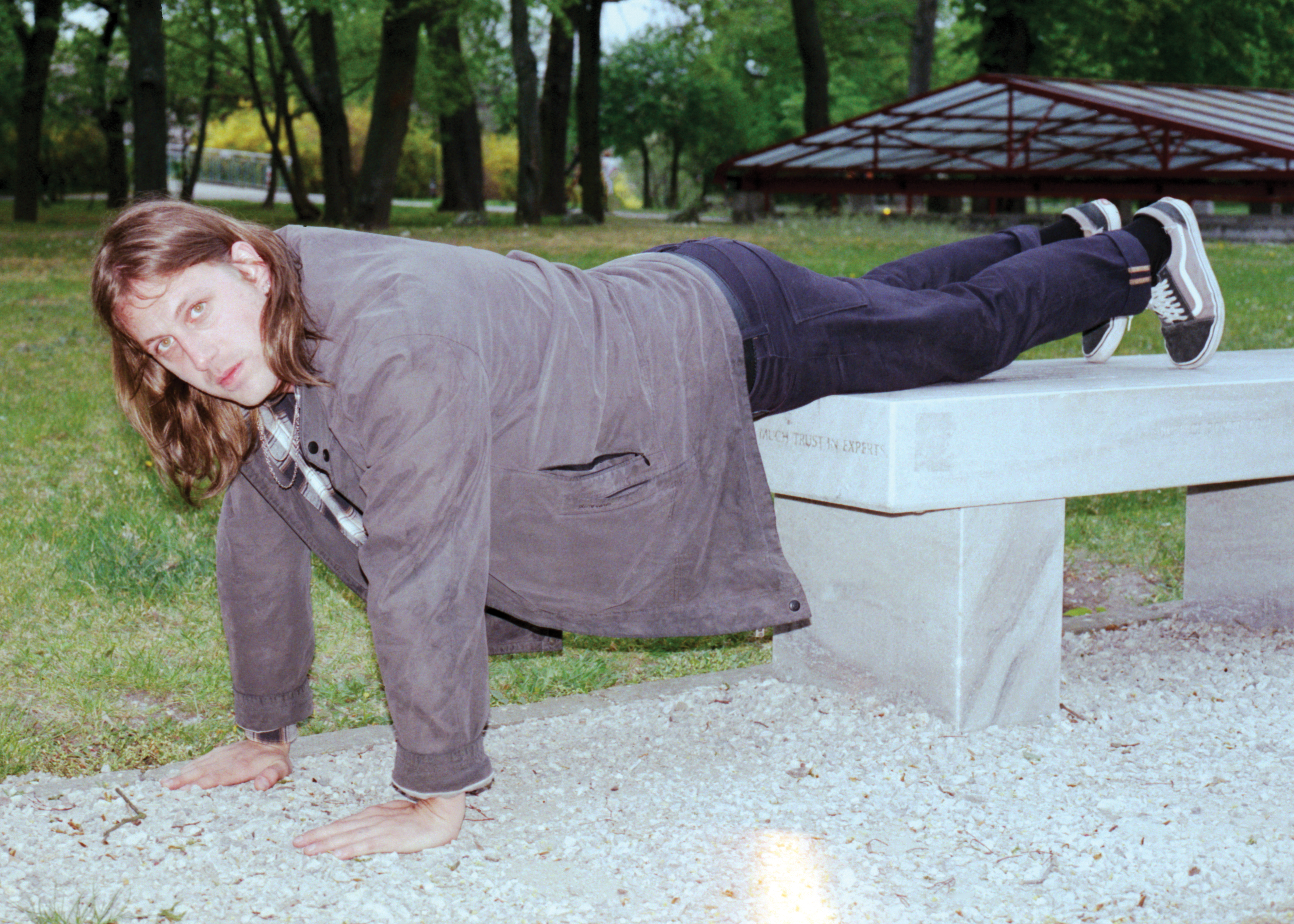
- Marc Hunziker next to Jenny Holzer Bench in the park in front of the Ujazdowski Castle. Photo: Dawid Misiorny
-
At the end of August, there is a second edition of the To Be Real project at the Ujazdowski Castle. You have been working on it together with the visual artist Zuzanna Czebatul and the DJ collective Syntetyk. What is the concept?
- It is difficult to talk about it in detail at this point. The curators of the project, Michał Grzegorzek and Mateusz Szymanówka, are bringing people together at the Ujazdowski Castle to explore the potential of rave and its origins in queerculture, the resistance movements and other progressive subcultures. One of the main focuses is on the collaboration of the invited individuals. From what I understand, it isn't the curators’ aim to turn a party into an artwork, but rather to organise a rave as a performance, while also questioning what an art institution can learn from the subcultures I mentioned.
-
What is your collaboration method?
- We’ve started by brainstorming and exchanging ideas. The guys have a three-week residency here at the Ujazdowski Castle. There is a lot of discussions about what those subcultures mean to us and how we are involved in them. So far we have worked a lot on the line up, inviting a diverse range of musicians. We are also collaborating on a series of posters and visuals that are going to be projected in the courtyard. Alongside other different media, like banners, flags or fanzines, we are planning to communicate various contents that seem important to us. The event is a part of the Antifascist Year here in Warsaw, and we will raise money for existing political movements. In a nutshell, the outcome of the project will be a party that engages in current issues and realities in Poland, and the world in general.
-
-
What kind of parties do you like?
- I like intense parties, messy and wild, the ones that never stop: raves. At the same time, I am into safe space politics, the idea and the urge to raise collective awareness towards different forms of discrimination that can happen during parties. And to find alternative solutions for dealing with them, other than through the law.
-
How is it to be in Poland in 2019?
- It's fascinating. The political situation calls for massive resistance from marginalised communities and those who are in solidarity with them. In the context of contemporary art, I experienced a greater need for cultural-left institutions to become important for representation and visibility. I took part in various events, actions and demonstrations.
-
Speculating about the future and climate changes that will come – where will you be in a decade?
- I would like to build a cultural commune – an interdisciplinary institute; a place to live and work with people from different fields.
